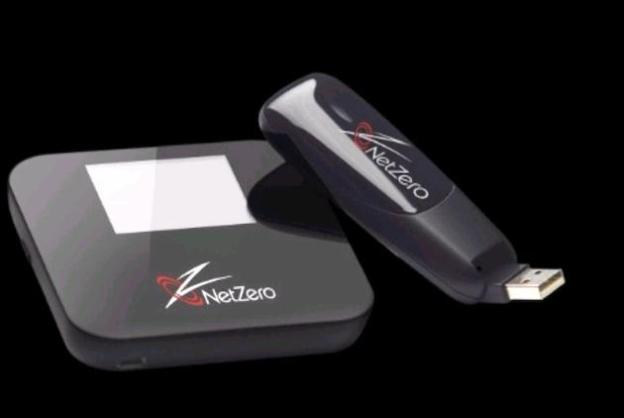
Internet access provider NetZero is getting competitive in the 4G data services space, announcing its new NetZero 4G Mobile Broadband Service that offers no-cost 4G mobile Internet access with the purchase of a 4G hotspot or USB stick. Of course, there is a catch — the free service is limited to 200 MB a month, which users on a 4G connection could conceivably burn through in a matter of minutes. Moreover, the free service is only available during the 12 months after purchase of 4G hardware, and cannot be renewed. However, NetZero offers some tools to help users manage their data consumption — and at the end of the day, free is free, right?
“NetZero is bridging the digital divide by letting consumers purchase a secure, quality, mobile broadband service at very affordable prices with plans designed to meet the consumers’ data needs,” said United Online chairman and CEO Mark R. Goldston, in a statement. (NetZero is a United Online subsidiary.) “Our service gives customers the freedom to take the Internet anywhere in our coverage area, without being tied to public Wi-Fi service or having to purchase higher-cost, sometimes multi-year plans offered by other mobile broadband providers.”
The 4G service is based on ClearWire’s existing WiMax 4G network, and NetZero is launching its packages today in over 80 cities, including major markets like San Francisco, New York, Chicago, Houston, Los Angeles, Washington D.C., and Miami. Getting on board with NetZero’s plans requires purchase of either a NetZero 4G HotSpot or a NetZero 4G Stick — the hotspot is actually a rebranded version of Clearwire’s own 4G, Spot Apollo 4G. Both devices are 4G only: users who roam outside an area with WiMax coverage won’t have 3G (or even 2G) service to fall back on. The hotspot can handle up to eight Wi-Fi devices; the USB stick works with a single notebook or desktop computer with a free USB port.
To help users manage their data consumption, the devices can be throttled to reduce their data consumption: “Warp Speed” limits the connection to 10Mbps, while mere “Light Speed” throttles download service to 1 Mbps.
In addition to the 200 MB/month free plan (good for 12 months after purchase of a device) , NetZero also offers monthly data plans: $9.95 a month gets users 500 MB of data, while 1 GB runs $19.95/month, 2 GB runs $34.95/month, and 4 GB runs $50/month. There are no overage charges: users who run into their monthly data limits can buy top-ups, upgrade to a plan with more capacity, or sit on their hands until the first of the month rolls around.
For folks who need inexpensive connectivity and live in an area where Clearwire’s 4G WiMax service is a viable option, NetZero’s plans might offer an appealing alternative to traditional contract-based mobile broadband data plans. For instance, someone who takes a notebook out and about once a week for work might be perfectly content with a 4G stick and the free 200 MB plan. And if they have to buy a new stick in a year, they still come out far ahead of the cost of a traditional mobile roaming plan.
The NetZero 4G stick is priced at $49.95; the NetZero 4G HotSpot is priced at $99.95.


